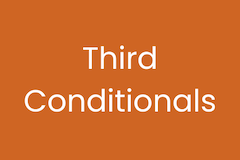Had Better for Advice
Listen to four conversations using the grammar point.
Answer the following questions about the interview.
Had Better
Point 1: The modals 'had better' has the same meaning as 'should' when used to give advice.
- You had better be careful.
- You should be careful.
- You had better slow down.
- You should slow down.
Point 2: The phrase 'had better' suggests that if the advice is not taken, there will be a negative consequence.
- You had better leave soon, or you might miss your bus.
- He had better call me, or I will get mad.
- They had better slow down, or they will get in an accident.
- You had better go home, or you might get even more sick.
Point 3: The word 'had' is usually contracted.
- She'd better be careful.
- He'd better not forget.
- You'd better tell you mother.
- We'd better get going.
Point 4: In naturally spoken English, the word 'had' or the contraction is sometimes not spoken.
- I better go.
- He better watch out!
- You better call me.
- She better be careful!
Point 5: The phrase is sometimes used as a hypothetical advice using 'it would be' regarding a situation.
- It would be better if you did not come.
- It would be better to call him.
- It'd be better for all of us.
- It'd be better in the longer run.
Point 6: The word 'best' is sometimes used instead of 'better' and the meaning is the same. It is more colloquial.
- I'd better get going.
- I'd best get going.
- You'd better see a doctor.
- You'd best see a doctor.
Main Text Goes Here










